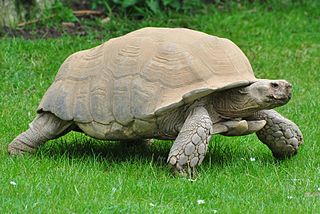
The African spurred tortoise, also called the sulcata tortoise, is an endangered species of tortoise inhabiting the southern edge of the Sahara Desert, the Sahel, in Africa. It is the largest mainland species of tortoise in Africa, and the third-largest in the world, after the Galapagos tortoise and Aldabra giant tortoise. It is the only living species in its genus, Centrochelys.

Anemonia sulcata, or Mediterranean snakelocks sea anemone, is a species of sea anemone in the family Actiniidae from the Mediterranean Sea. Whether A. sulcata should be recognized as a synonym of A. viridis remains a matter of dispute.
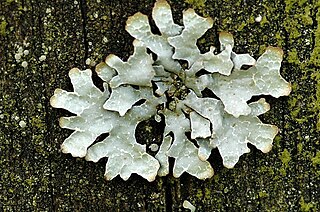
Parmelia sulcata, commonly known as the hammered shield lichen or cracked-shield lichen, is a foliose lichen in the family Parmeliaceae. First described by Thomas Taylor in 1836, it is one of the most prevalent lichen species globally, known for its resilience to pollution and cosmopolitan distribution across temperate and cold regions of both hemispheres. P. sulcata forms a circular thallus up to 10 cm (4 in) in diameter, with a glaucous white to grey upper surface and a black lower surface, featuring broadly lobed structures with both marginal and laminal soralia and a distinctive reticulate pattern of pseudocyphellae.

Subcancilla sulcata is a species of sea snail, a marine gastropod mollusc in the family Mitridae, the miters or miter snails.

Centrochelys is a genus of tortoise. It contains one living species, the African spurred tortoise, native to the Sahel and adjacent areas. A number of fossil species have been attributed to this genus, but their placement in the genus is considered equivocal.
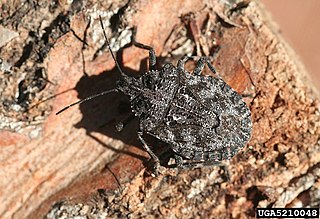
Brochymena sulcata is a species of stink bug in the family Pentatomidae. It is found in North America.

Bitoma is a genus of cylindrical bark beetles in the family Zopheridae. There are about 15 described species in Bitoma.
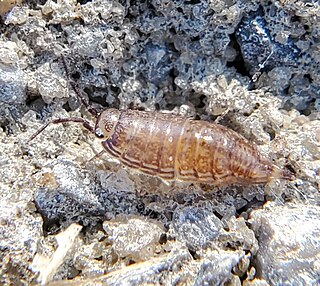
Atlantoscia is a genus of woodlice in the family Philosciidae. There are about seven described species in Atlantoscia.

Nitidula is a genus of sap-feeding beetles in the family Nitidulidae. There are more than 20 described species in Nitidula. Some species breed in carrion while others are associated with later stages of decay in mammalian corpses and can be used in forensic investigations.
Falagria is a genus of rove beetles in the family Staphylinidae. There are more than 30 described species in Falagria.
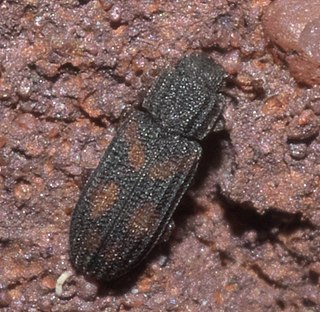
Bitoma quadriguttata is a species of cylindrical bark beetle in the family Zopheridae. It is found in North America.
Ilnacorella sulcata is a species of plant bug in the family Miridae. It is found in North America.
Ilnacorella is a genus of plant bugs in the family Miridae. There are about five described species in Ilnacorella.
Bitoma vittata is a species of cylindrical bark beetle in the family Zopheridae. It is found in North America.

Bitoma crenata is a species of cylindrical bark beetle in the family Zopheridae. It is found in North America and Europe.
Falagria sulcata is a species of rove beetle in the family Staphylinidae. It is found in North America and Europe.
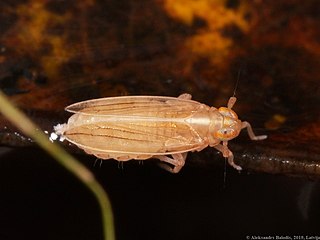
Kelisia is a genus of delphacid planthoppers in the family Delphacidae. There are more than 50 described species in Kelisia.
Lachesilla sulcata is a species of fateful barklouse in the family Lachesillidae. It is found in Central America and North America.
Bitoma exarata is a species of cylindrical bark beetle in the family Zopheridae. It is found in Central America, North America, and South America.

Antheminia is a genus of true bugs belonging to the family Pentatomidae.











